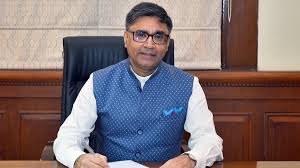NEW DELHI: Foreign Secretary Vikram Misri will be on a two-day visit to China from January 26, making it the third high-level contact between the two countries over the past more than two months.
External Affairs Minister S Jaishankar and National Security Adviser Ajit Doval have had separate meetings with Chinese officials in November and December last year. “Foreign Secretary Vikram Misri will be visiting Beijing on January 26-27 for a meeting of the Foreign Secretary-Vice Minister mechanism between India and China,” the Ministry of External Affairs (MEA) said today.
The resumption of this bilateral mechanism flowed from the agreement at the leadership level to discuss “next steps” for India-China relations, including in the political, economic and people-to-people domains, the ministry said in a brief statement. The “next steps” in the relationship also include confidence-building measures at the Line of Actual Control (LAC), particularly de-escalation and de-induction of troops.
The India-China thaw had started on October 23 last year following a bilateral meeting between Prime Minister Narendra Modi and Chinese President Xi Jinping on the sidelines of the 16th BRICS summit at Kazan in Russia. After the meeting, a “patrolling arrangement” was worked out along the LAC in eastern Ladakh. It also included a plan to disengage troops from the two remaining friction spots—Depsang and Demchok.
The Kazan meeting had kick-started the stalled bilateral relationship by tasking, among other things, resumption of dialogue at the level of special representatives (SR) to oversee the management of peace and tranquillity in border areas. It also called for working out a “fair, reasonable and mutually acceptable” solution to the pending boundary disputes.
After the Kazan meeting, Jaishankar had met his Chinese counterpart Wang Yi on the sidelines of the ‘G20 Leaders Summit’ at Rio de Janeiro in Brazil on November 18 where the two discussed the future course of ties.
In December last year, the Special Representatives on the boundary dispute, Ajit Doval and his Chinese counterpart and Foreign Minister Wang Yi, met in Beijing. They agreed to “inject vitality” into the process of settling the long-pending boundary dispute and maintaining “peace and tranquillity” in the border areas to promote bilateral relations.
Both Jaishankar and Doval had discussed resumption of the Kailash Mansarovar Yatra and data sharing on trans-border rivers and border trade.
India and China don’t have a demarcated boundary and Beijing has resisted all proposals for having one in place. As of now, a 3,448-km- long LAC running along the east-west axis of the Himalayan ridge line is the de-facto boundary. The LAC itself is not demarcated on the ground and its alignment is disputed by either side.


